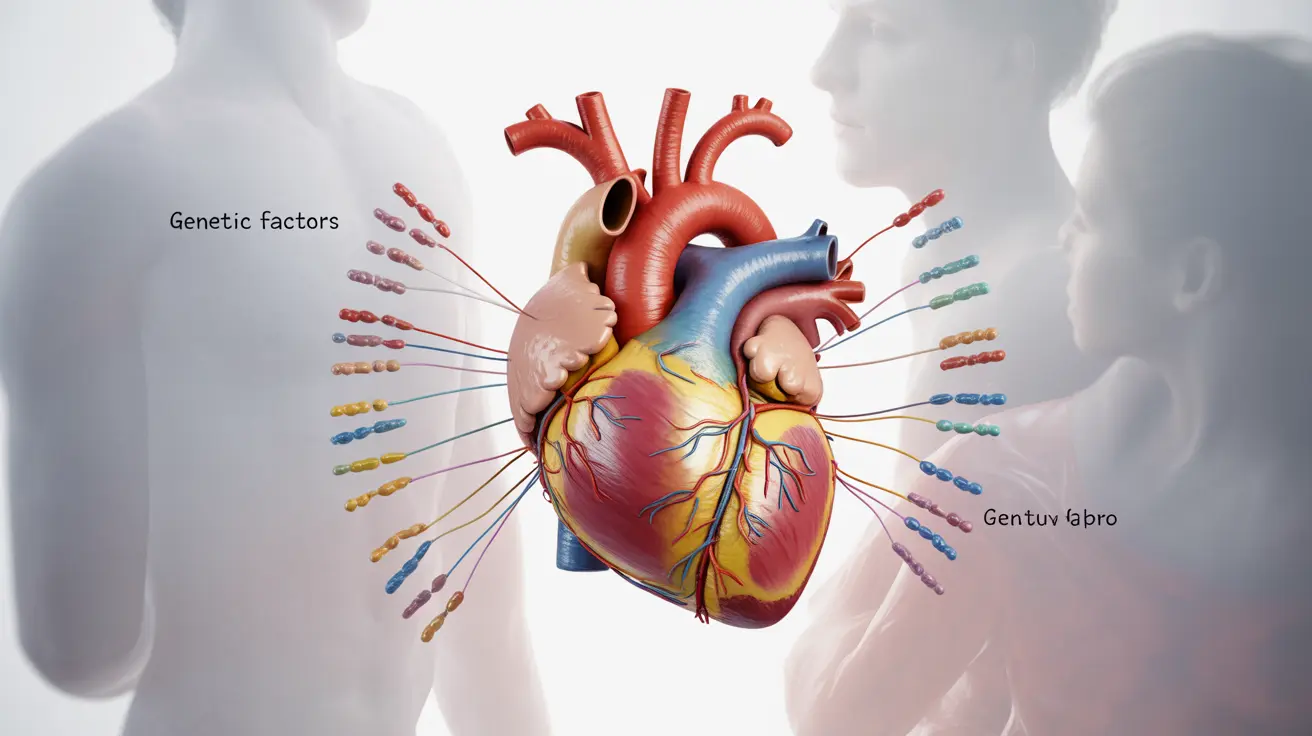Family history plays a crucial role in determining your risk of developing heart disease. Many people wonder whether this potentially life-threatening condition is more likely to be inherited from their mother or father. Understanding the genetic aspects of heart disease can help you make informed decisions about your health and take appropriate preventive measures.
Both parents can contribute to your genetic risk of heart disease, but the pattern of inheritance is complex and involves multiple factors. Let's explore how parental genetics influence your heart health and what you can do to manage your risk effectively.
The Role of Genetics in Heart Disease
Heart disease inheritance isn't as simple as getting it directly from either parent. Instead, it involves a complex interaction of multiple genes from both parents, along with environmental factors and lifestyle choices. Several genetic variations can affect your heart health, including those controlling:
- Blood pressure regulation
- Cholesterol metabolism
- Blood vessel formation
- Inflammation response
- Blood clotting factors
Understanding Early-Onset Heart Disease
Early-onset heart disease, typically occurring before age 55 in men and 65 in women, often has a stronger genetic component. When either parent develops heart disease at an early age, it can significantly increase your risk of developing similar conditions.
Risk Factors from Both Parents
While both parents can pass on genes that increase your risk of heart disease, certain patterns have been observed:
- Maternal history may influence heart attack risk
- Paternal history often correlates with coronary artery disease
- Multiple affected family members increase overall risk
- Early-onset cases suggest stronger genetic influence
Prevention and Risk Management
Having a family history of heart disease doesn't mean you're destined to develop it. You can take several proactive steps to manage your risk:
Lifestyle Modifications
Implementing healthy lifestyle changes can significantly reduce your risk:
- Maintaining a heart-healthy diet
- Regular physical activity
- Managing stress effectively
- Avoiding tobacco use
- Limiting alcohol consumption
Medical Monitoring
Regular health screenings become particularly important when you have a family history of heart disease. Work with your healthcare provider to monitor:
- Blood pressure
- Cholesterol levels
- Blood sugar
- Body weight
- Cardiovascular function
Frequently Asked Questions
Is heart disease more likely to be inherited from my mother or my father?
Heart disease can be inherited from either parent. While some studies suggest a slightly stronger correlation with maternal history for certain types of heart disease, both parents' genetic contributions are significant. The overall risk depends on multiple genetic factors from both sides of your family.
How does having a parent with early-onset heart disease affect my risk of developing heart disease?
Having a parent with early-onset heart disease (before age 55 for men or 65 for women) significantly increases your risk. Studies suggest your risk may be 2-3 times higher compared to someone without this family history, making early screening and prevention crucial.
What genetic factors contribute to heart disease inherited from parents?
Multiple genetic factors contribute to inherited heart disease risk, including genes affecting cholesterol metabolism, blood pressure regulation, inflammation response, and blood vessel formation. These genes can come from either parent and interact with each other and environmental factors.
Can lifestyle changes reduce my risk if I have a family history of heart disease?
Yes, lifestyle changes can significantly reduce your risk even with a family history. Regular exercise, maintaining a healthy diet, not smoking, managing stress, and controlling blood pressure and cholesterol levels can help overcome genetic predisposition to heart disease.
When should I get screened for heart disease if my mother or father had cardiovascular problems early in life?
If you have a family history of early-onset heart disease, begin screening at least 10 years before the age your parent developed the condition. Generally, screening should start between ages 20-30, with more frequent monitoring as recommended by your healthcare provider based on your specific risk factors.




